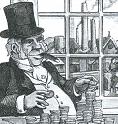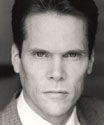|
Postess with the Mostest posted:PCs are worse people. Liberals do more damage. When PCs do bad things, there's a real vocal opposition to it. When Liberals do it, they get away with it because PCs are worse and we don't want to help them. Liberals are just fauke enough to be able to explain away building a pipeline by "balancing the environment and the economy" and making a good show of doing carbon taxes but not applying them to the dirtiest corporations. They do superficially good things to buy license for the bad things. The PCs have to limit the bad things. Yes that’s basically my point; I didn’t critique the ideology in either direction.
|
|
|
|

|
| # ? Jun 7, 2024 04:23 |
|
mediaphage posted:Depends on whether you think damages wrought by a PC government are lesser or greater than those that would happen under a Liberal government. I’m not being snide, because as far as I can see this is the question this election. lol. Good luck with that one.
|
|
|
|
Jordan7hm posted:lol. Good luck with that one. It happens like clockwork. Cons take power, act like raging assholes, tick off enough people in Ontario, Libs replace them. Libs campaign on a left-sounding agenda, govern from the right, mix a few showy but ineffectual progressive policies in with right-wing governance, eventually corruption gets so blatant that the Cons replace them. Over and over again till the species goes extinct.
|
|
|
|
Jordan7hm posted:lol. Good luck with that one. No clue what you mean unless you’re reading way too much into what I mean by turnover. In lakes, turnover can happen cyclically as a result of seasonal change in how layers are stratified. It’s a natural cycle that sometimes chokes people, that’s all. I’m hardly advocating for revolution BGrifter posted:It happens like clockwork. Cons take power, act like raging assholes, tick off enough people in Ontario, Libs replace them. Bingo.
|
|
|
|
The best thing about the Liberals losing this election would be that they already have their ready-made explanation for it: Trudeau did blackface and that turned away the electorate. It wasn't our lying and breaking key campaign promises, it wasn't our horrible governance, it wasn't our progressive lip-service on top of right-wing policies, it wasn't our scandals. No, we can keep doing all that stuff as long as we do it with a leader who wasn't exposed as doing blackface like two days after the writ dropped. It preemptively reminds me a lot of American Democrats after Hillary lost, and they refused to accept that she was an awful candidate with an awful record who ran an awful campaign, no it was all Russia's fault.
|
|
|
|
What will be really great is if the Liberals lose the election but with numbers that would've won it for them under PR or STV.
|
|
|
|
prom candy posted:What will be really great is if the Liberals lose the election but with numbers that would've won it for them under PR or STV. I mean, in a poetic sense, yeah. Not in any other because it's not like it'd actually get them to go through with electoral reform in the future.
|
|
|
|
https://twitter.com/paulvieira/status/1176138263872069632 AaaaaaAaaaaaaaaaaaaaaaaaaa
|
|
|
|
prom candy posted:What will be really great is if the Liberals lose the election but with numbers that would've won it for them under PR or STV. yeah this is what i wish for most of all
|
|
|
|
I assumed you meant a more radical change, which I think is extremely unlikely.
|
|
|
|
Guess I should have bought a house as I'd become the right class to be pampered by the incoming con mega-majority.
|
|
|
|
Baronjutter posted:Guess I should have bought a house No don't it's a trap
|
|
|
|
mediaphage posted:No don't it's a trap So is renting a modest one bedroom apartment for $1350 a month. Our housing situation is beyond hosed and the party likely to form government is planning to dump gasoline over everything and flick matches at the pile.
|
|
|
|
How about people vote for the party/candidate they agree with the most and stop spreading the doom and gloom of the future of this country by telling people it will rain death if they cast a vote for anyone but the Liberals.
|
|
|
|
Is there a strategic voting option in Renfrew Nippissing Pembroke I can use to tell Cheryl Gallant to eat poo poo that doesn't involve ramming the government office in Pembroke with a truck full of explosives?
|
|
|
|
I understand people thinking about strategic voting if their riding is actually down to just the cons and libs with everyone else not standing a remote chance. What I don't understand are people in areas where the contest is between Lib and NDP thinking "I better vote liberal because of the conservatives". If you don't like the conservatives, vote anyone but them???
|
|
|
|
BGrifter posted:So is renting a modest one bedroom apartment for $1350 a month. Yeah, I'm just still salty over having to get all the gutters / soffits / downspouts replaced at an eye-watering figure.
|
|
|
|
I've been investigating a career change into throwing rocks at landlords and property speculators.
|
|
|
|
CRISPYBABY posted:I've been investigating a career change into throwing rocks at landlords and property speculators. This one lady who complains about our neighbourhood going down (where I live, and where she used to live, but left to go buy a second house in a different neighbourhood while renting out the one in my neighbourhood), and it never makes me identify with that statement more. And for the record, our neighbourhood is kind of amazing, which just makes me angrier when I see her complain. No surprise she constantly spouts PC talking points.
|
|
|
|
Pinterest Mom posted:https://twitter.com/paulvieira/status/1176138263872069632 Conservatives are just straight black pilled now and I'm kind of here for it honestly. Pump up the real estate bubble, dig up every last bit of oil and gas, just stomp on the loving accelerator and drive straight towards the cliff. Doubling down on every stupid position as though it's a virtue Accelerationism to own the libs
|
|
|
|
https://twitter.com/OttawaReporter/status/1176155464284946432 Hell yeah a down payment on “critical next steps”
|
|
|
|
Like a consultation With the Pharma company closest to the Irvings or something
|
|
|
|
can't wait for our 2021 major liberal policy announcement, a "what style of pharmacare are you" survey
|
|
|
|
EvilJoven posted:Lmao at all the posts talking about strategic voting for the very loving party that said we wouldn't have to deal with this anymore, or the loving Greens, who are literally scared of wifi and think we can save the world by free marketing a Prius into everyone's driveway (and gently caress you if of you can't afford a Prius or a driveway). i agree its much better to stand by our convictions and let sheer run the country
|
|
|
|
Pinterest Mom posted:https://twitter.com/OttawaReporter/status/1176155464284946432 They've literally been saying this for 3 loving years. Half the provinces have working Pharmacare already, why wouldn't you just put money into expanding those programs and making them universal?
|
|
|
|
zapplez posted:i agree its much better to stand by our convictions and let sheer run the country Is trudeau that much better? Just look at postess.....
|
|
|
|
Trudeau is a million times better. Conservatives let their social ideology guide them places that are not ideal for the doers of this country. The Liberals are capitalism loving patriots and will do whatever it takes to keep this economy going including setting their sails in the direction of the prevailing social winds. Harnessing that bountiful wind energy, the can direct it into useful tasks like increasing natural resource output or keeping snc lavalin afloat. Ignore the leaders, look at like Cheryl Gallant and Bill Morneau. Both terrible people but one of them is a terrible person who can roll up his cufflinks and gets poo poo done. We are focused too much on this election, we should be just focusing on a way to keep the conservatives out and the liberals in that is much more permanent.
|
|
|
|
Good poo poo, sign me up https://twitter.com/jptasker/status/1176137138510925824?s=21
|
|
|
|
Postess with the Mostest posted:Trudeau is a million times better. Conservatives let their social ideology guide them places that are not ideal for the doers of this country. The Liberals are capitalism loving patriots and will do whatever it takes to keep this economy going including setting their sails in the direction of the prevailing social winds. Harnessing that bountiful wind energy, the can direct it into useful tasks like increasing natural resource output or keeping snc lavalin afloat. Ignore the leaders, look at like Cheryl Gallant and Bill Morneau. Both terrible people but one of them is a terrible person who can roll up his cufflinks and gets poo poo done. We are focused too much on this election, we should be just focusing on a way to keep the conservatives out and the liberals in that is much more permanent. As if "prevailing social winds" is some fixed thing that automatically trends to the good. Let the real estate bubble burst and unemployment hit 20%, I think you'll find that prevailing social winds in that economy is the "average" Canadian hanging refugees on the street. That's what's coming, and bullshit milquetoast technocrat centrism will not save us from it
|
|
|
|
Wendell posted:Good poo poo, sign me up The average canadians I'm referring to live in the houses pictured behind him. Or more accurately, think they'll live there in 5-10 years but never will Holding a presser on an abandoned featureless nameless loving suburban street. You honestly couldn't pick a more visually representative spot for what he has to offer
|
|
|
|
PT6A posted:Should I vote strategically for a Liberal MP based on the fact Scheer is a gently caress and I hate him most of all, or should I just throw my vote away this election? The Cons are going to sweep every riding in Calgary, it makes no difference.
|
|
|
|
Wendell posted:Good poo poo, sign me up We hope that one day you too may be able to own an obnoxious mcmansion for which you pay 60% of your income.
|
|
|
|
oh good i cant wait to buy a home with a mortgage that won't be fully paid off until after im dead
|
|
|
|
Would no stress test lead to what made the US real estate market collapse?
|
|
|
|
The French on that lectern is making the entire thing look lopsided, it's gross.Vintersorg posted:Would no stress test lead to what made the US real estate market collapse?
|
|
|
|
Vintersorg posted:Would no stress test lead to what made the US real estate market collapse? No that happens once the conservative government " repeals the stifling government overregulation that oppressed Canadians and keep us from getting ahead"
|
|
|
|
Vintersorg posted:Would no stress test lead to what made the US real estate market collapse? No. Canada's only had one since Jan 2018.
|
|
|
|
Apologies for another of these long and who-actually-asked-for-this?!? style posts but because I have spent so much time attacking the NDP I think it is important that I clarify that I do not think the disappearance of the NDP would automatically produce a better alternative. While I do believe that the NDP blocks the possibility of a more leftist party emerging I really want to emphasize that just because the NDP is occupying the space where a leftist party might appear does not in any sense entail that removing the NDP would therefore automatically bring such a party into being. I think the larger issue is that we're too focused on Parliament in general. I've brought up the need for stronger organizational capacity in the past but in order to substantiate that I am going to post a few excerpts from an interesting monograph that examined the comparative successes and failures of two activist organizations, one in France, the other in Germany. I'll preface this by pointing out that there is a substantial and helpful literature on what causes new social movements to emerge and what factors can predict their relative success or failure. In what follows we'll see some examples of how this question is modeled. As with many realms of social science you get the familiar breakdown of macro and micro factors. As a general rule micro analysis focuses on the behaviour of individual agents and how they interact with each other (i.e. how does a firm decide whether to hire more workers or invest in more production). Macro analysis concerns systemic interdependence (i.e., how does the aggregated buying and selling of all the firms in the marketplace create systemic patterns that translate into things like booms and busts). There is a less common but important in-between level of analysis, the meso, which focuses on specific community or organization within a larger system (i.e. the dynamics and decision making within a specific firm; if micro looks at individual decisions and macro at larger scale interactions then the meso is the intermediate layer in which these two forces meet and are expressed via some specific institutional configuration, like a specific workplace or union or organization). We tend toward macro analysis in this thread. We see the overall state of the country and how hosed up our politics are and think of what macro factors have caused this to happen. As it happens this is paralleled in the dominant literature on social movements. They too have various macro oriented models that try to explain when, how and why people choose to get involved in a social movement. On the off chance this is compelling enough to anyone that they want to check out the full book for themselves you can access it here. At the core of this literature is the idea of a "Social Movement Organization" (SMO), Daniel Stockemer, The Micro and Meso Levels of Activism: A Comparative Case Study of Attac France and Attac Germany, London: Palgrave Macmillan, 2013, p. 1-3 posted:The Civil Rights Movement of the 1960s, anti-nuclear protests, and the pro-peace mobilization of the 1980s, as well as gay and lesbian activism of the 1990s and 2000s, are examples where common people opted for engagement that goes beyond the process of ordinary politics (Morse, 1993). They displayed a deeper commitment to a political goal – political motivation that cannot be measured simply by casting a vote for a party (Mouriaux, 1983, p. 53). Citizen engagement has taken shape in the form of social movements, as defined by Sidney Tarrow. He understands social movements in the classical sense as “collective challenges by people with common purposes and solidarity in a sustained interaction with elites, opponents and authorities” (Tarrow, 1998, p. 3). Collective action defined in this way not only takes many forms, brief or sustained, institutionalized or disruptive, humdrum or dramatic, The three dominant ways of interpreting social movement formation reference above are. These explanations are not mutually exclusive and can be viewed as complementary. On the other hand, they are all pitched primarily at a macro-level of analysis, which is to say they don't offer very good explanations for why some groups succeed and others fail under more or less the same conditions. Such an explanation requires a more nuanced micro and meso level explanation. The three broad approaches for explaining the appearance and success of social movements is: 1. relative deprivation theory 2. resource mobilization theory 3. opportunity structure theory To briefly cover each of them: Relative Deprivation Theory Stockemer, p. 14-15 posted:Over the past 50 years, grievance or relative deprivation theories have been the dominant, classical explanation for why some people have engaged in contentious political activities while others have not (Geschwender and Geschwender, 1973). Grievance theorists (Forger, 1986; Runciman, 1966) see feelings of relative deprivation, which result from perceived discrepancies between peoples’ value expectations and their value capabilities, as the root cause for unconventional political action (Klandermans et al., 2001).1 The underlying assumption in this approach is that citizens do not normally protest when they are satisfied with their daily lives. Rather, people are more inclined to engage in collective action when facing dire economic, social, or political conditions, whether real or perceived (e.g., Choi, 1999; Seidman, 1994). As Klandermans (1997) puts it, a demand for change often begins with dissatisfaction, be it in the experience of illegitimate inequality, perceptions of a loss of integration in society, feelings of injustice and moral indignation about some state of affairs, or a sudden imposed grievance (see also Abeles, 1976). Stockemer, p. 15 posted:To explain changes in sources of frustrations in industrialized countries, new social movement scholars (Melucci, 1989, 1998; Touraine, 1981, 1988) claim that the type of society may predispose people to certain grievances and demands. For example, Touraine (1985, p. 774–781) argues that industrialized societies were prone to class struggles as well as to struggles for political and civil rights. However, as Melucci (1998, p. 13) contends, the era of industrial conflict ended in the 1950s or 1960s. With the fulfillment of material needs and the granting of (basic) political rights, individuals no longer wanted more material goods but were seeking self-realization (Buechler, 1995, 2008). After 1968, other forms of postmaterial values (e.g., peace or the environment) became more central as well.2 While this is an intuitively appealing theory it runs aground on the fact that "most of the time, most aggrieved people who are not represented neither mobilize nor form any movement structure" because "whether those aggrieved and inadequately represented create SMOs within the civil soceity subsystem of the political system seems to depend on other conditions, such as a subset of aggrieved individuals with resources, who are able to build an organization, and the opening up of political opportunities that allow these aggrieved individuals with resources to act." (Stockemer, p. 17). That naturally leads us to the second theory: Resource Mobilization Theory Stockemer, p. 17-18 posted:Only small subsets of aggrieved individuals can initiate SMOs. The resource mobilization approach alerts us to four necessary personal conditions, which aggrieved people must fulfill in order to create an SMO. These factors are financial and personal resources, time, energy, and experience (Edwards and McCarthy, 2004). First, a start-up of an SMO requires monetary funds. Most small and local start-ups require moderate amounts of capital, which can often be provided by initiators and their friends. However, larger SMOs often need outside funding. This funding can come from foundations, existing SMOs, interest groups, parties, or wealthy individuals (Walker, 1991). Opportunity Structure Theory Stockemer, p. 18 posted:The opportunity structure theorem purports that the likelihood of aggrieved people with resources to launch an SMO rises and falls with perceptions of successful mobilization. In this sense, political opportunity structures (POSs) refer to constraints, possibilities, and threats that originate inside or outside the mobilizing group and affect its chances of mobilizing. Structural characteristics of political systems, the behavior of allies, adversaries, and the public; societal tendencies, economic structures, and developments – all these factors can be sources of mobilizational opportunities (McAdam, 1982; McAdam, Tarrow, and Tilly, 2001; Tarrow, 1989a, 1989b, 1991; Tilly, 1978, 2005.) For example, the ability to appeal to a wide variety of interests, the emergence of a sponsor, or the possibility to push through a policy demand might entice possible initiators to spend both time and energy to launch an SMO Bringing that together we get the following synopsis for how SMOs come into existence and then succeed or fail: Stockemer, p. 19-21 posted:Three factors account for the development of protest structures within civil society. These are (1) the existence of grievances in society; (2) the So to briefly sum all this up: there are multiple factors that need to be present for a successful social movement to launch itself and have any reasonable expectations of success. There has to be a set of identifiable grievances that can be targeted, there needs to be a critical mass of individuals with the necessary resources (monetary, social, personal) to launch a new organization. In situations where you have a large population of aggrieved individuals, a group of political entrepreneurs ready to capitalize on those grievances, and a plausible looking plan for putting this into action then you can get the emergence of a new social movement organization. While these SMOs are not sufficient for enacting policy change they are necessary for it. So while they're not a panacea for all that ails us they are a crucial part of the puzzle if you're someone who is confused about why Canadian neoliberalism is such a monolithic political tendency in Canada. Looking forward past the current election I think the trick is to ask about the extent to which these conditions are present in Canada and how they could conceivably be capitalized on. Or alternatively, if the prospects of a new social movement are too grim to be worth bothering oneself about then what is the most useful investment of time and resources you can make in Canadian context. I don't claim to have ready answers for these questions. If there's sufficient interest I might revisit this later and discuss the next section of the monograph I'm quoting from, which sketches out a basic supply and demand model of social change and also describes the three central axes around which organizing takes place: instrumentality (the belief that one can actually make a meaningful difference by getting involved), identity (feeling kinship with the group) and ideology (the structure of values and beliefs in a person's mind that transcend specific situations and provide the basis for large scale evaluation of behaviour and events).
|
|
|
|
So, in a nutshell, the problem with leftist politics in Canada is that the aggrieved individuals don't have resources.
|
|
|
|

|
| # ? Jun 7, 2024 04:23 |
|
Toalpaz posted:Is trudeau that much better? Just look at postess..... I know the whole "both sides are the worst" is so played out at this point and both of them are just 100% pro big business, but you have to be a loving idiot to not realize the Libs have a much better track record when it comes to social liberty. Whether its gay marriage or bringing up abortion rights or weed or whatever. There is a big difference.
|
|
|


























 Yes, it's like a lava lamp.
Yes, it's like a lava lamp.







